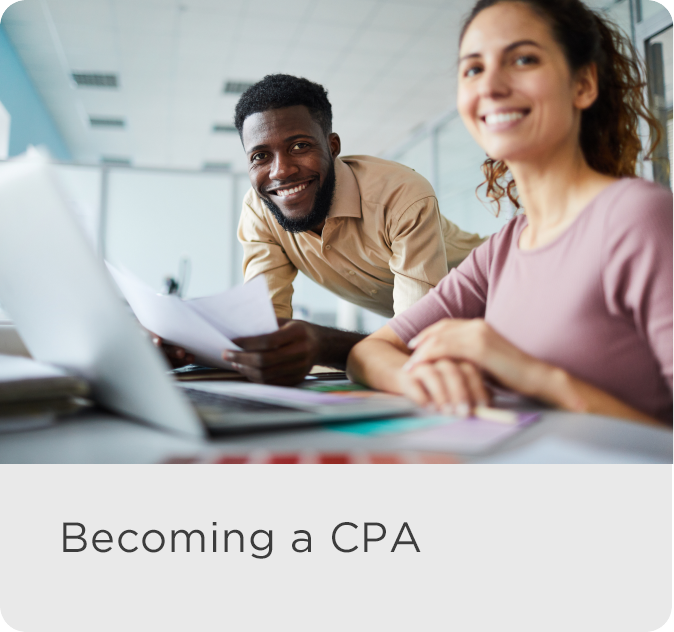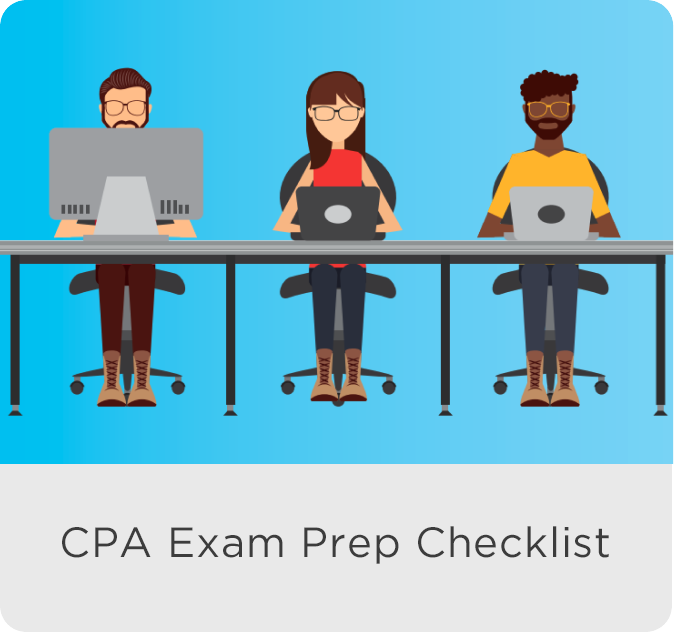
Being a CPA is more than just crunching numbers—it's about leading, innovating and making an impact. CPAs are the driving force behind industries, transforming businesses and creating opportunities. Look beyond the numbers and discover a career where you’ll have the future, influence decisions and lead with purpose.
Explore Limitless Possibilities
CPAs don’t just follow the rules—they create them. They are leaders, innovators, and influencers who use their expertise to drive change across industries. With a CPA credential, you can open doors to opportunities you’ve only imagined.

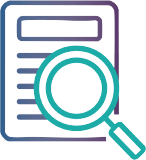
Forensic Accounting
Solve financial crimes and bring integrity to high-stakes investigations

Corporate Entertainment
Guide movie studios and production companies in managing budgets and royalty distribution behind the scenes

International Accounting
Travel the world while helping global companies navigate international tax laws and exchange rates
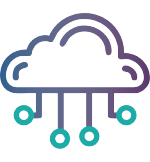
IT and Data Analytics
Be a tech innovator, leveraging data analytics and cloud technology to solve complex financial problems

Sports Team Accounting
Combine your love of sports with financial leadership, managing payrolls and budgets for professional teams

Entrepreneurship
Start and lead your own business using your financial expertise to drive innovation and success
Your Journey Starts Here
Wherever you are on your journey, OSCPA is here to support you every step of the way. Whether you’re beginning in high school or preparing for your CPA exam in college, OSCPA provides the tools and connections to help you succeed.
Instructions for using the Tab Container template:
Note: there are 2 Sitefinity tabs on the right hand side of this page, "Content" and "Layout". Some template options/widgets will be found in the Content tab and others will be found in the Layout tab.- Navigate to Content tab > Navigation dropdown and drag a ""Navigation widget" onto the page.
- Click Edit on the Navigation widget
- Choose the radio option for "Custom selection of pages" and click "Change"
-
Choose the "External URLs" tab and then click "Add external URL".
Note: All this is doing is creating the titles for the tabs. You only need to provide a Title you do not need to provide a URL, leave this blank. - Navigate to Layout tab > Grid widgets and drag a "tab-container" onto the page directly below the Navigation widget.
- Drag and drop any content you would like into each of the tab-container tabs where it says "Tab x content here:"
High School Students
Begin building your future with a strong foundation in accounting. Explore scholarships, internships and early opportunities.
College Students
Access mentorship, CPA exam prep and resources to take the next step toward your CPA success.

Level Up with OSCPA
Join a community that’s dedicated to helping you thrive. Membership for students is FREE, giving you access to exclusive resources and connections that will fuel success.

Be in-the-Know
Stay updated on breaking news and legislative developments impacting the profession

Exclusive Learning Opportunities
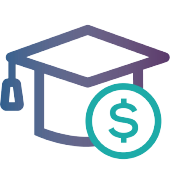
Scholarships
Save on tuition with scholarships from the Ohio CPA Foundation

Career Connections
Join our Accounting Careers Leadership Academy, or explore our Career Center for top job opportunities
FAQs
Got questions about becoming a CPA? We’ve got the answers. Check out our most frequently asked questions and get all the info you need to kickstart your CPA journey.
Get Ready to Succeed
Get the tools you need to excel in your CPA journey. From exam prep guides to top internship listings, we’ve got everything you need to take the next step with confidence.

Download Our Free CPA Resources:


